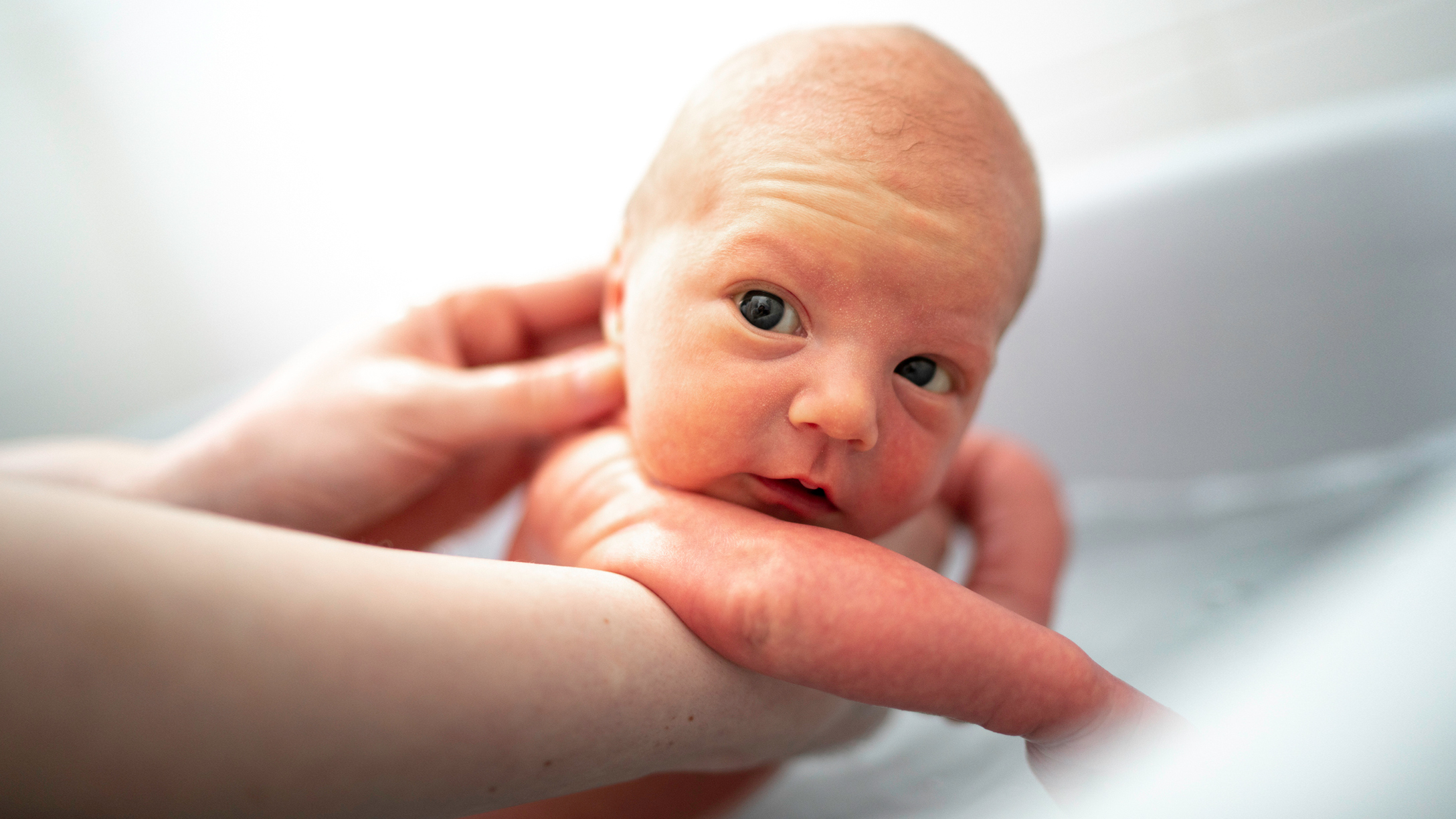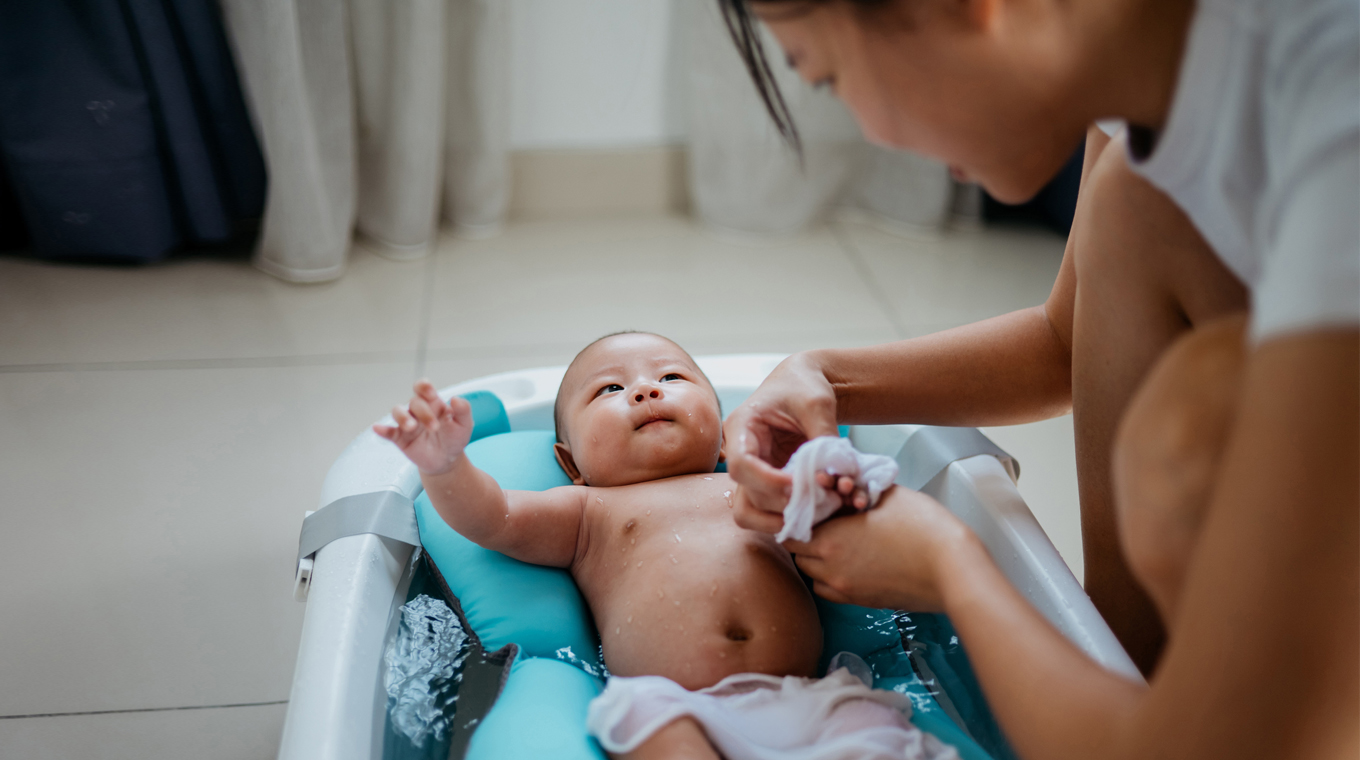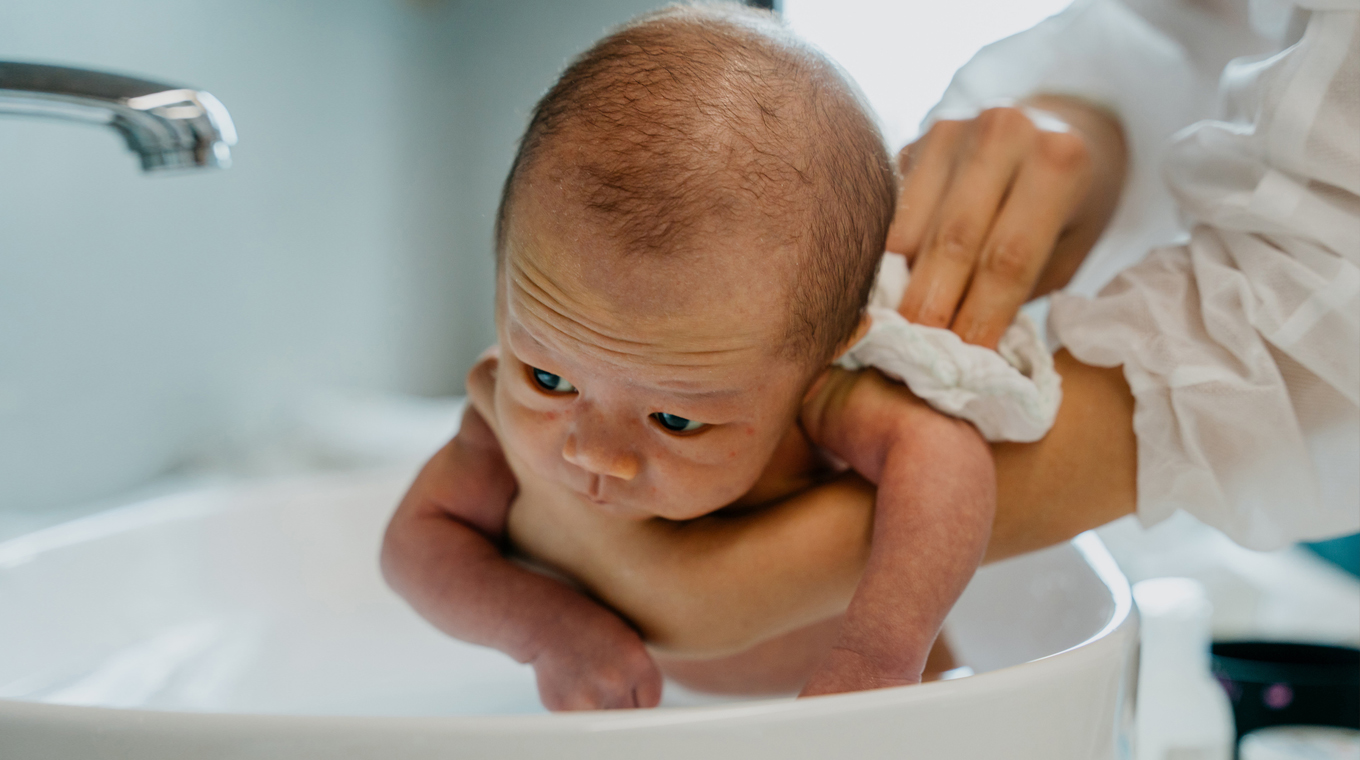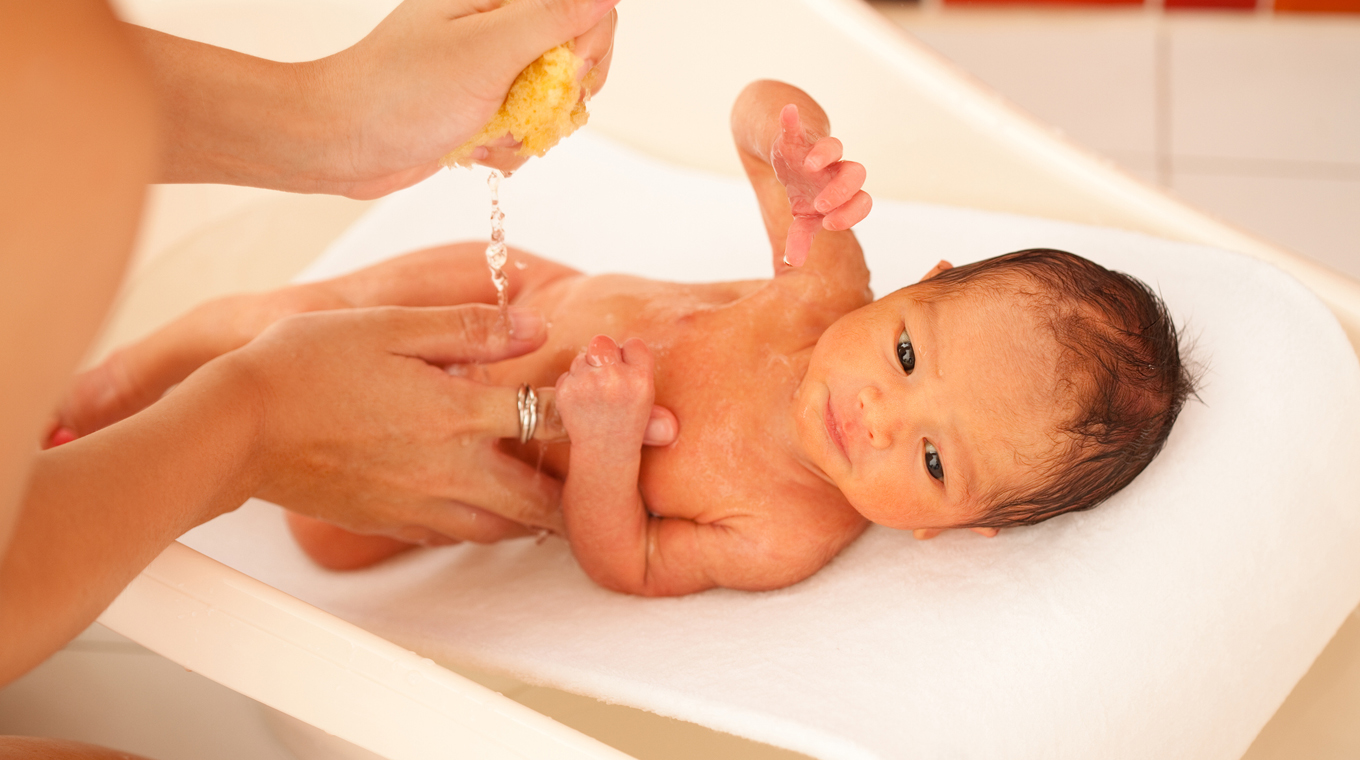
IN THIS ARTICLE
Bathing our newborns may sound a bit tricky, but it is one of those great bonding experiences that we are lucky to have. Those once seemingly mundane aspects of life, like bathing, feeding, and sleeping all take on a whole new meaning when it is for our little ones.
And just like everything else associated with having a newborn, bathing may bring apprehension. But the biggest question might not be how but when to bathe a newborn?
Let’s explore that question together and figure out how to provide our baby with the best — and safest — bathing experience.
Delayed bathing: Waiting a week to bathe a newborn

Yes, delayed bathing is a thing. Parents and even the hospitals are holding off on giving your baby his first bath after birth.
“The World Health Organization (WHO) recommends delaying baby's first bath until 24 hours after birth — or waiting at least 6 hours if a full day isn't possible for cultural reasons,” Dr. Dipesh Navsaria shared with Healthy Children.
The health benefits of a delayed first bath do wonders for our little ones:
- Body temperature and blood sugar levels remain stabilized. There is no “shock to the system” when bathing water touches their skin so soon out of the womb.
- Skin-to-skin time is prioritized. Baby bonding occurs right away and for a longer period of time because there is no rush to take the baby away for bathing.
- Dry skin is avoided. The vernix — the milky coating — conditions their skin and continues to nurture the delicate newborn skin.
If the hospitals are waiting to bathe the newborns, then the parents definitely are as well. The reason behind the delay falls on the umbilical cord; moist or wet umbilical cords can cause infections, and for the health of our little ones, their cords need to stay dry until they fall off.
“Only give your newborn sponge baths until the stump of the umbilical cord falls off, which usually happens by about one or two weeks of age,” advised Dr. Navsaria. After the cord comes off, your baby can experience their first bath in warm water, but until then sponge baths will be the spa experience that your baby gets to have.
What's the verdict on how often to bathe a newborn?

Unlike teenagers, babies do not sweat or have body odor, and because of that, baths only need to happen two to three times a week. Instead, the Mayo Clinic suggests quickly and thoroughly changing diapers and burp cloths so that the face, neck, and diaper area — parts of your baby that need attention — are kept clean.
Newborn skin is not like our adult skin. It is more sensitive and contains natural oils that keep it healthy. Sporadic bathing is key to keeping their skin from drying out.
What's the advice on how to bathe a newborn?

Bath preparation is key. Mom of two Mary shared how she sets up her baby’s bathing items. “Essentials for a successful bath include towels/hooded towel, baby wash, at least two washcloths (one to wet with warm water and lay over the baby to keep them warm, the other to actually wash with), and a cup for rinsing,” Mary wrote on The Mom Friend.
Aside from having a smooth bathing experience, prepping the space ensures that you will never leave your baby unattended during her bath time.
Here are some tips for what bath time might look like:
- Keep them warm. Cover their body as you wash them section by section. If it is a sponge bath, keep their diaper on until you are ready to wash their genital area.
- Always begin with their face. Gently wipe their face with a wet cloth that does not have soap. Then, add soap to the cloth and begin washing the rest of their body from the top down.
- Get in the creases! Be sure to clean in the creases and folds of their necks, arms, and legs.
- Have fun. Trinkle bits of water around and let their hands explore the water. No toys are necessary in this routine, as the only entertainment she will need is the water.







